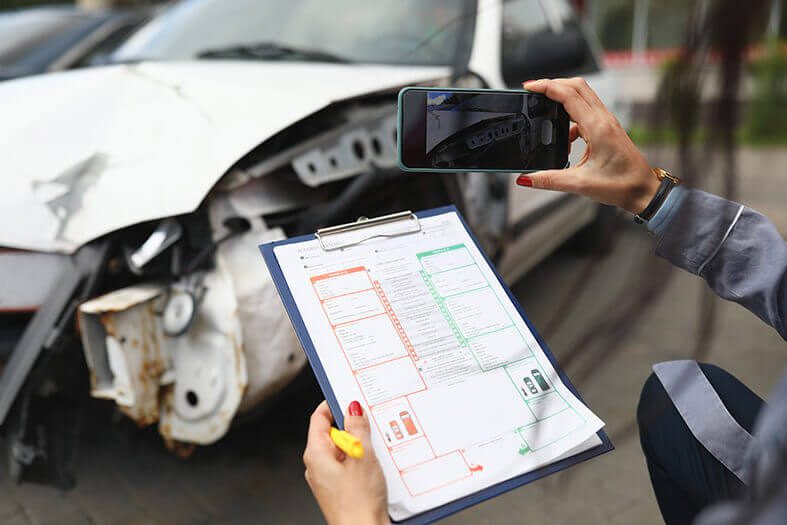Cycling Accidents
If you have been injured while cycling within the last 2 years we can provide specialist legal advice and assist you in your claim for compensation following the accident which was not your fault.
Types of cycling accidents:
We have dealt with a broad range of accidents involving cyclists such as the following:
- An accident caused by potholes
- Collisions caused by vehicles emerging from or turning into side roads
- Accidents caused by car doors opening
- Collisions at roundabouts
- Bicycle accidents involving an animal
- Accidents involving overtaking vehicles
- Vehicles performing unsafe U-turns
- Uninsured or hit and run drivers
What should I do after a cycling accident?
Before you do anything it is vitally important that you care for our health and safety. You should immediately seek medical attention and you should also contact the Gardaí to attend at the scene of the accident.
In order to assist you in obtaining the best possible conclusion to your personal injury case, it is helpful if you can attend to the following matters:
- Get the name, address, vehicle registration, and insurance information from the other party.
- If it is safe to do so take a photograph of the scene of the accident.
- Call the Gardaí as soon as possible.
You should only attend to these issues once you are satisfied that you and all parties involved in the accident are safe and well.
How do I make a cycling accident claim?
If you are able to obtain all the information as mentioned above then you should make contact with a solicitors firm that has extensive experience in cycling accidents such as McElhinney & Associates Solicitors.
We will take all the information from you, we will contact the insurers for the other driver. We will make contact with your GP to obtain a medical report setting out the extent of your injuries and we will then lodge an application with the Personal Injuries Assessment Board on your behalf.
How long after an accident must I make a claim:
It is really important that you begin to investigate the claim as soon as possible and as soon as you are physically well to do so. This is because details from an accident can be lost such as a road layout may change or vehicles can be fixed before they are photographed. The nature and extent of the damage to each vehicle can be a very important piece of evidence in determining how the accident happened.
If you have had an accident, be it a cycling accident, workplace accident, slip trip or fall, there has always been an obliged on you to serve a letter of claim on the responsible party, setting out the cause of your action and details of the injury suffered by you.
Section 13 of the Central Bank (National Claims Information Database) Act 2018, which took effect from the 28th of January 2019, states that any Plaintiff who wishes to bring personal injury proceeding must serve a letter of claim within one month from the date of the accident. If they fail to do so and the case is ultimately heard by a Judge, then that Judge “shall” draw such inferences as appear proper and either refuse to award legal costs to the Plaintiff or reduce the costs, where the interests of justice so require.
So, therefore, any person intending to bring a personal injury action must immediately make contact with your Solicitor following the accident, otherwise, it is mandatory for the trial Judge to impose adverse consequences on the Plaintiff.
You do have two years from the date of the accident to lodge your claim with the Personal Injuries Assessment Board, however, you must now serve your warning letter to the other party within one month from the date of the accident.
How is compensation assessed:
Compensation for injuries is often referred to as damages. Damages can be divided into general damages and special damages. General damages are the amount of money to compensate you for the pain and suffering that you have endured as a result of the injury together with compensation for any inconvenience and loss of amenity.
General damages can also be assessed for pain and suffering into the future.
The Injuries Board has a book of quantum which provided a guideline for the range of values ascribed to particular injuries.
In addition to general damages, special damages may also be awarded. Special damages are items that must be paid to put somebody back in the same financial position that they were prior to the accident or injury taking place. The most common item of special damage claimed by a Claimant is loss of earnings. This would cover past loss of earnings up to the date of the claim and also any future loss of earnings.
Other items of expenditure can also be recovered, for example, GP visits, specialist treatment, pharmacy costs, travelling expenses, physiotherapy expenses, nursing care, aids and appliances that might be required as a result of the injury.
It is so important that a Claimant retains receipts for any item of expenditure incurred by them. The Injuries Board and the court require “vouching documentation” i.e. receipts if they are to deal with these expenditure claims.
